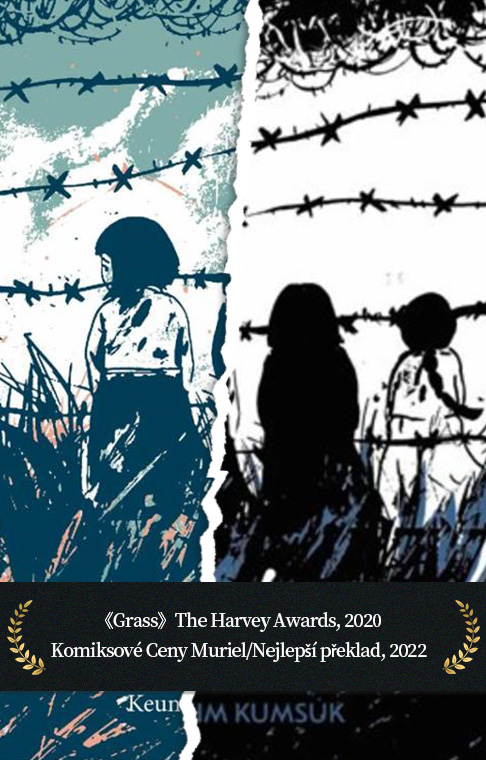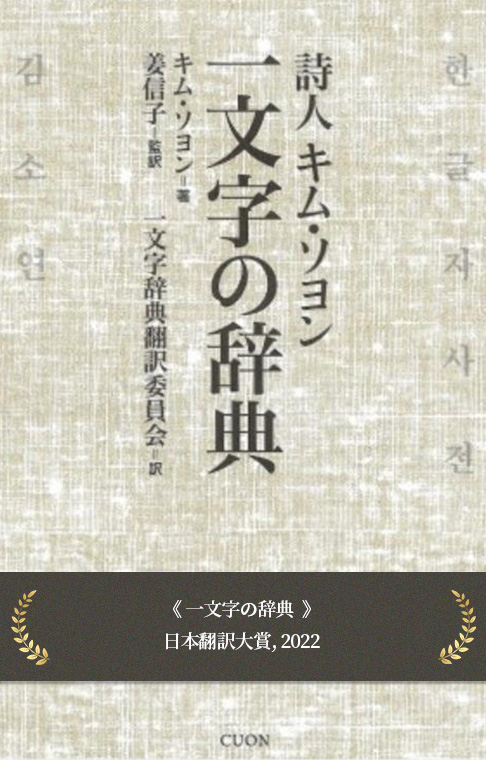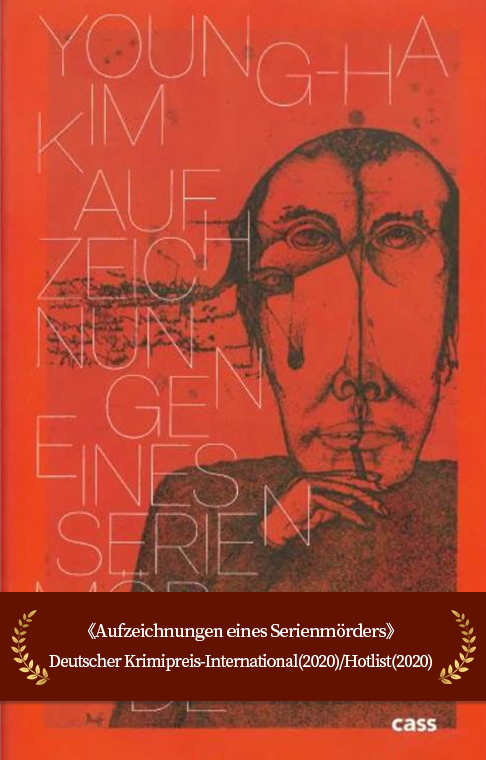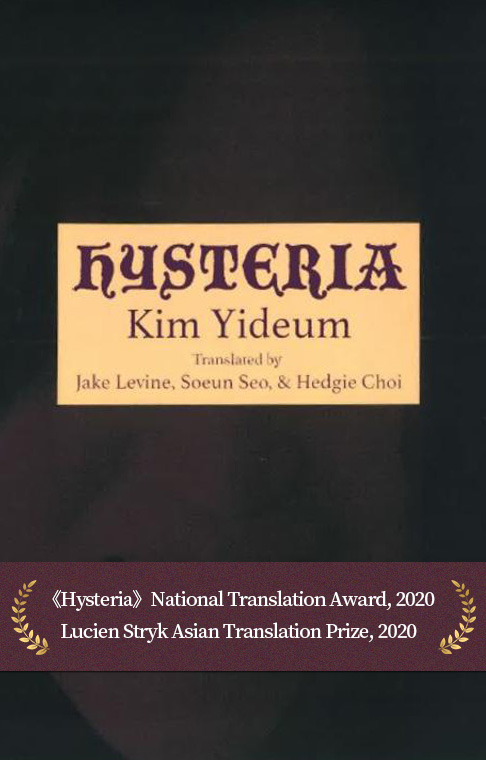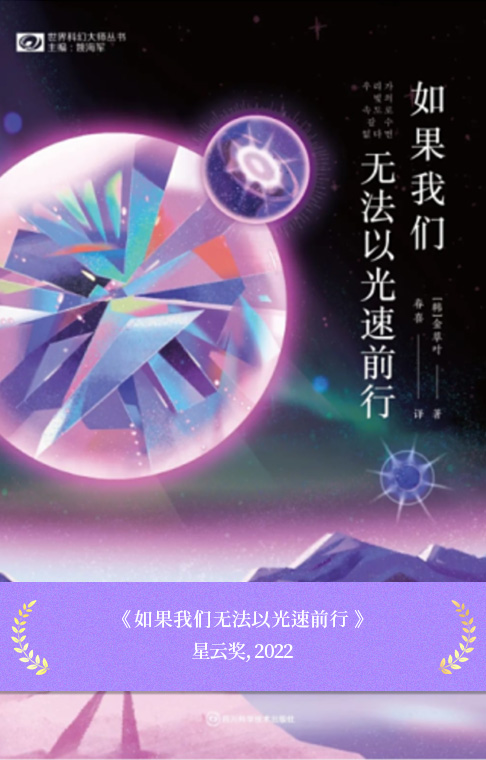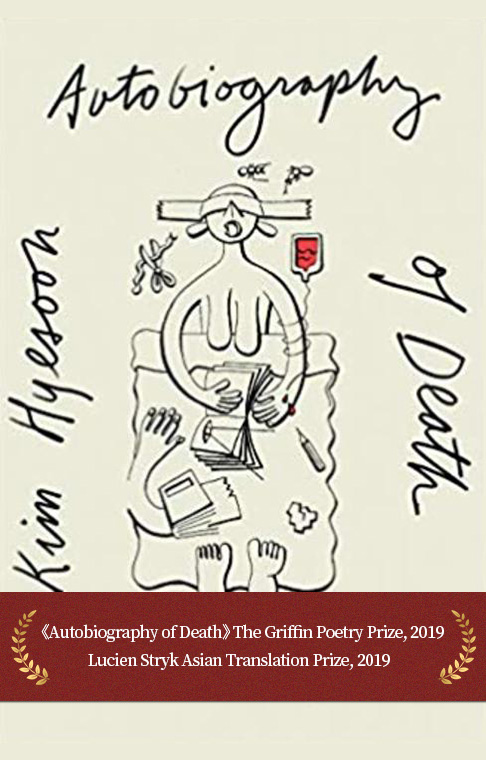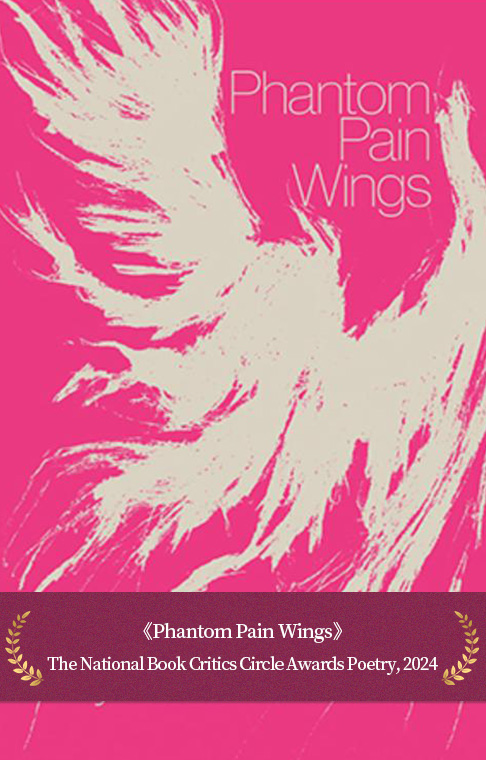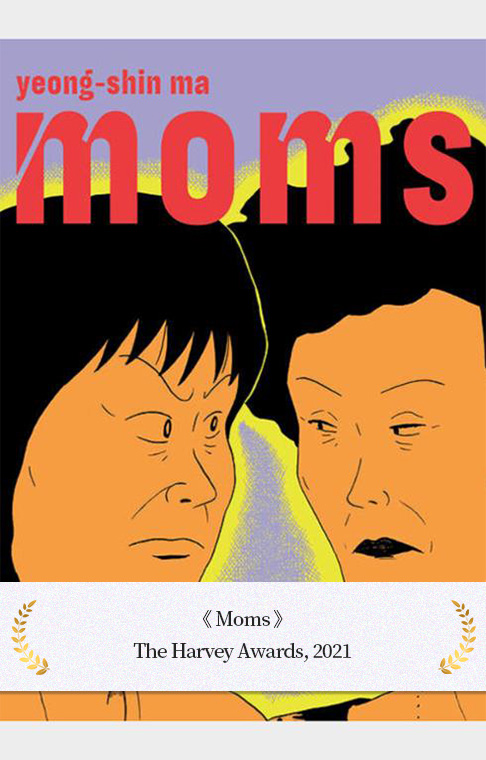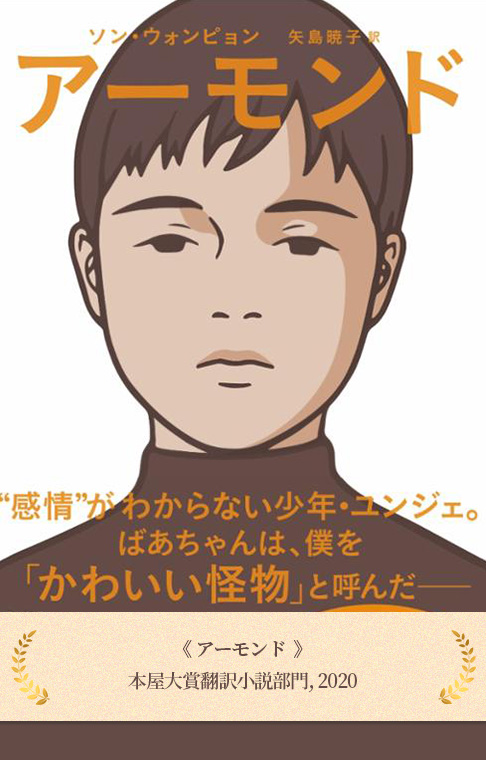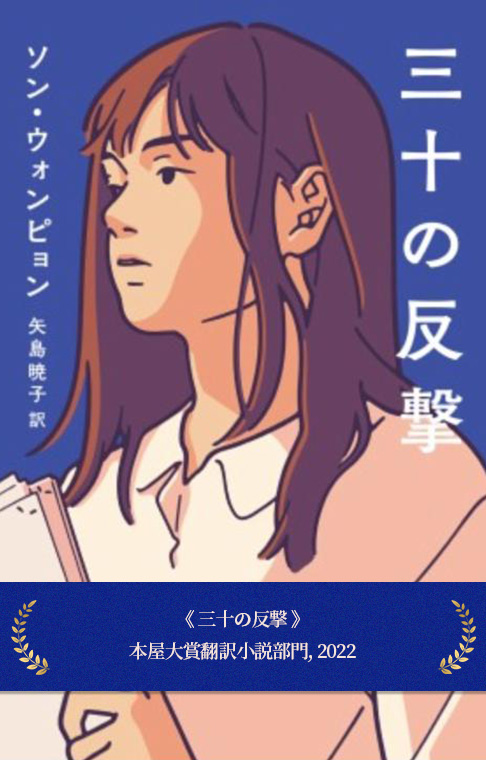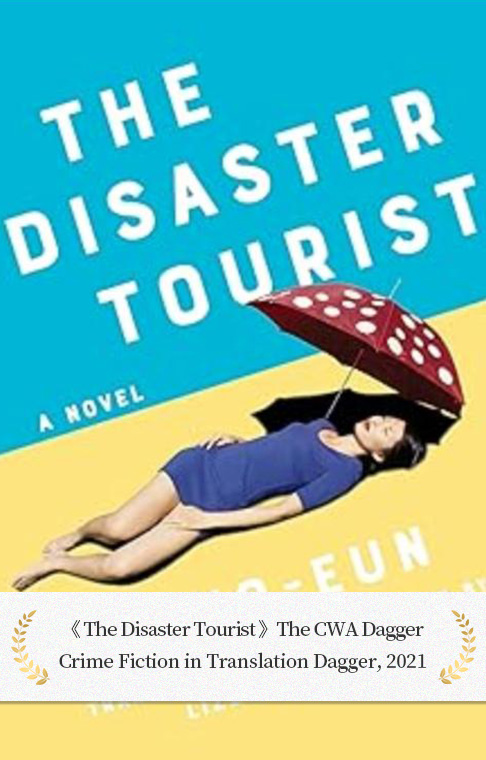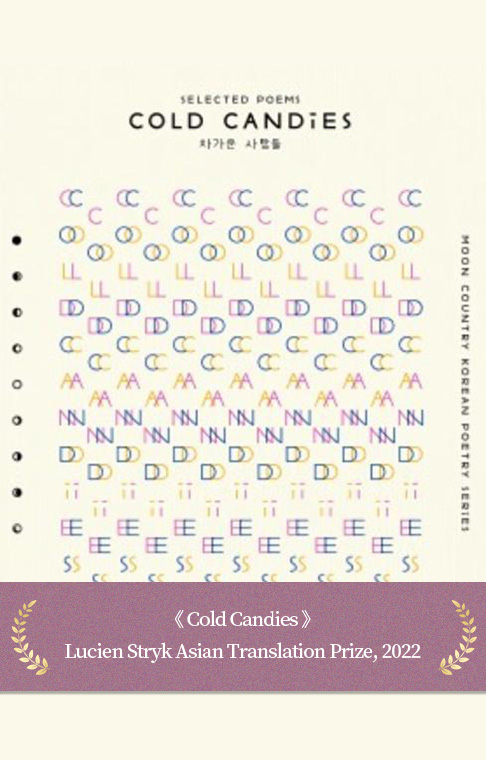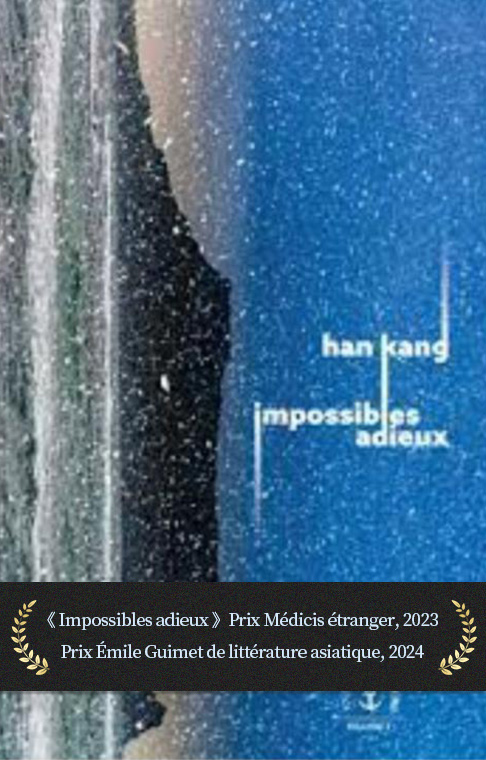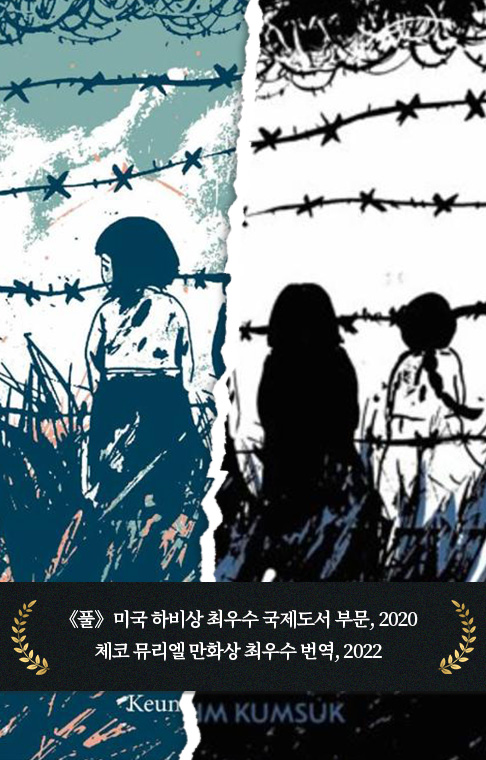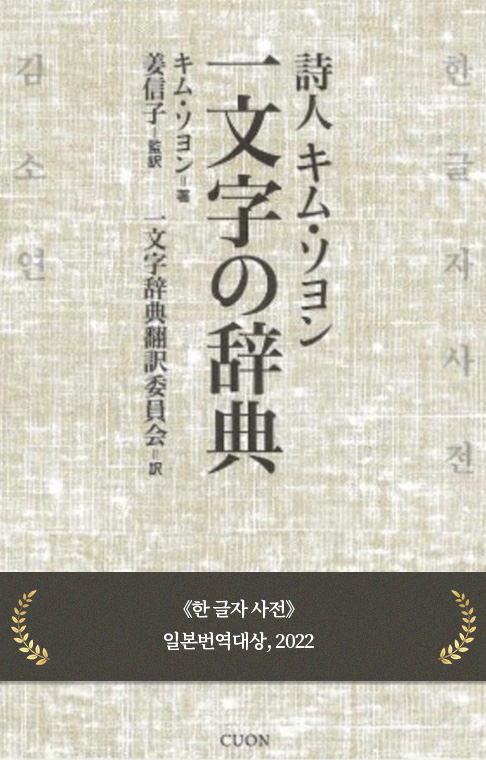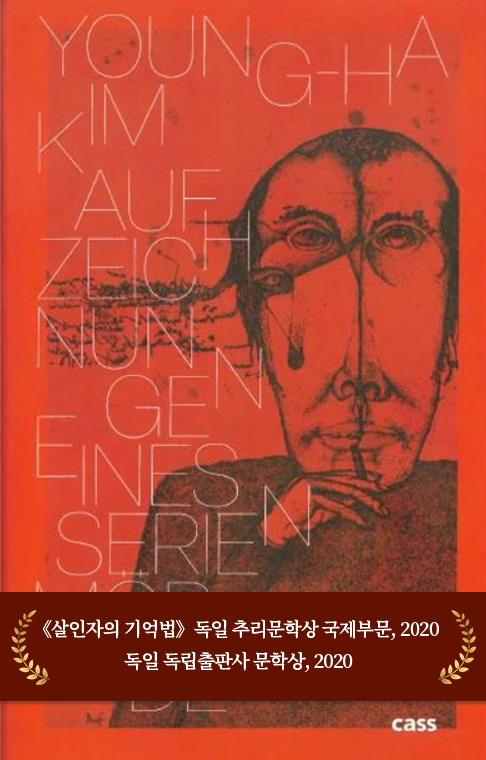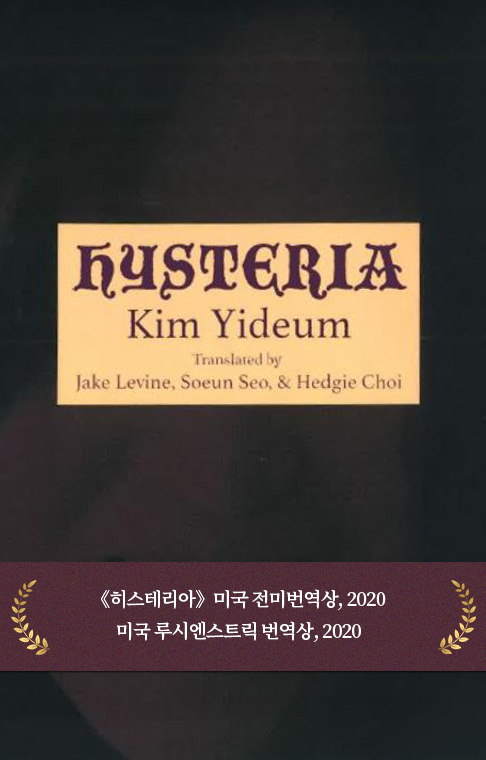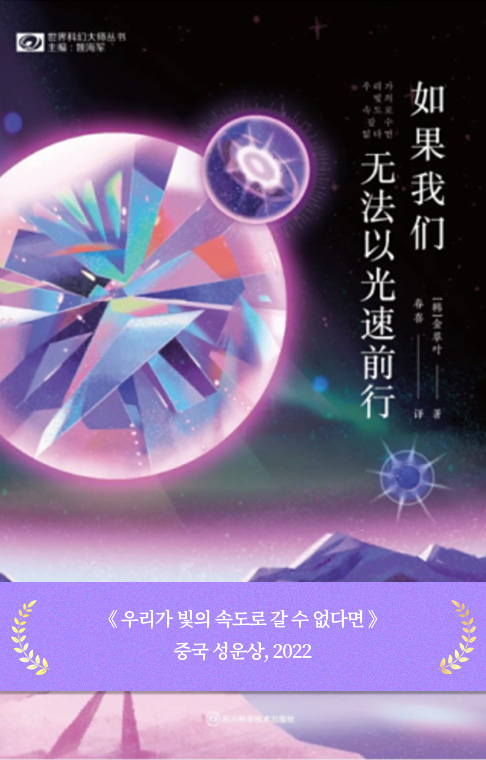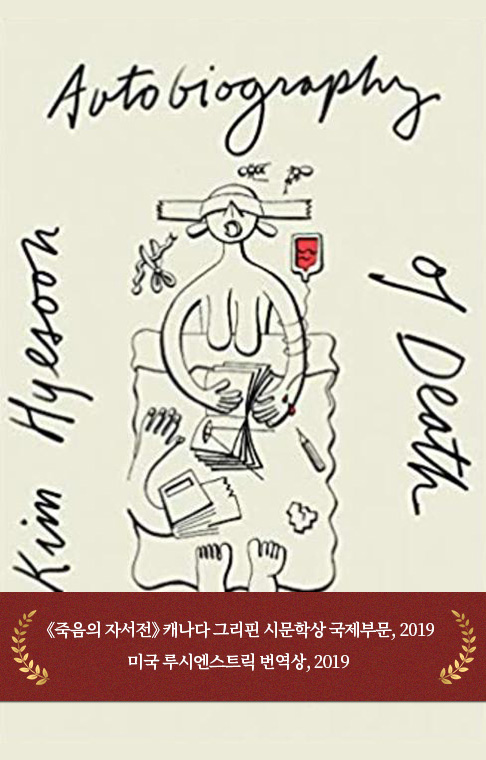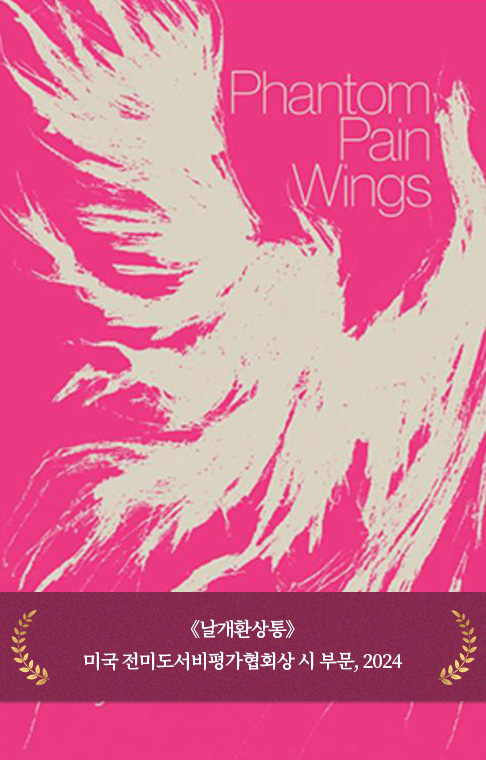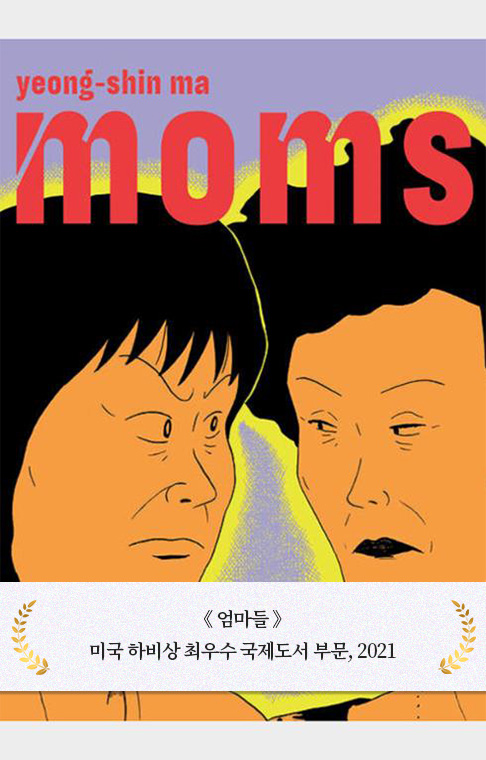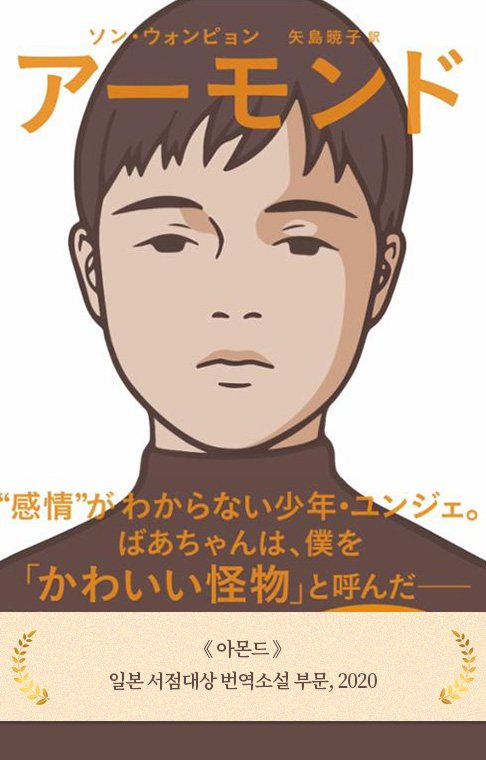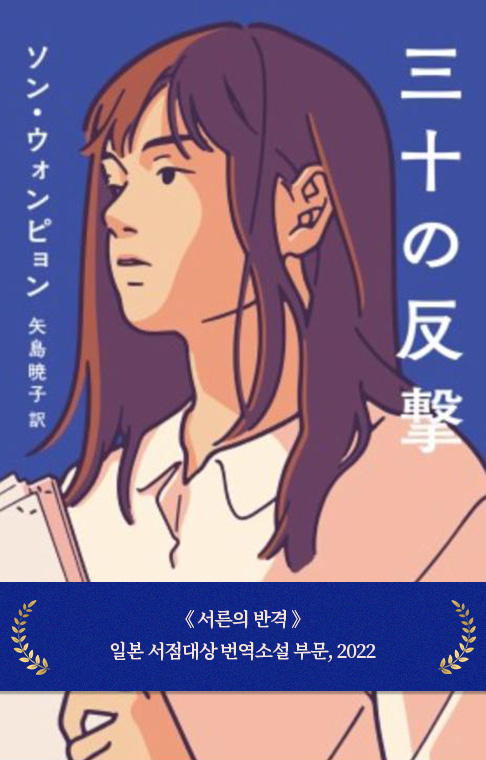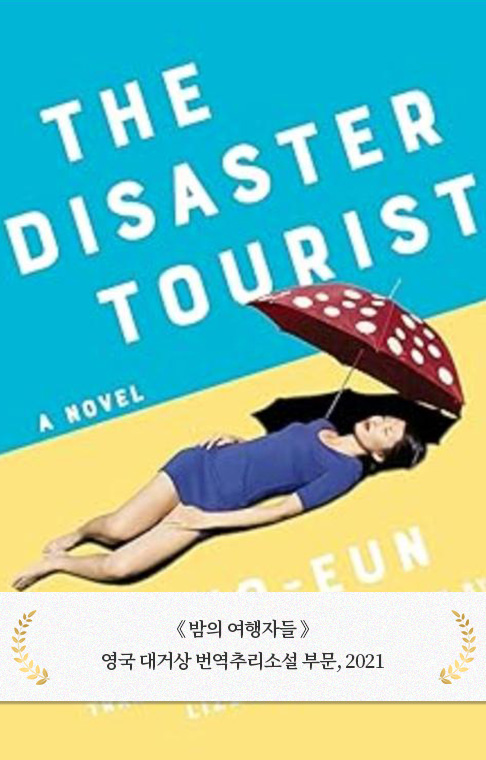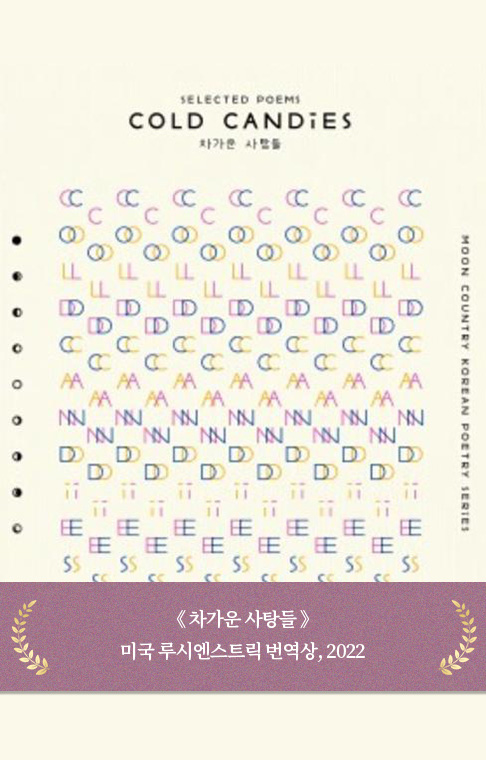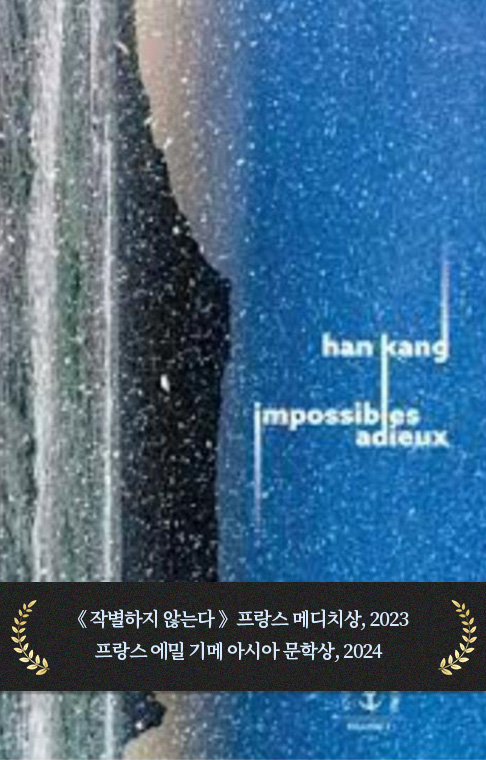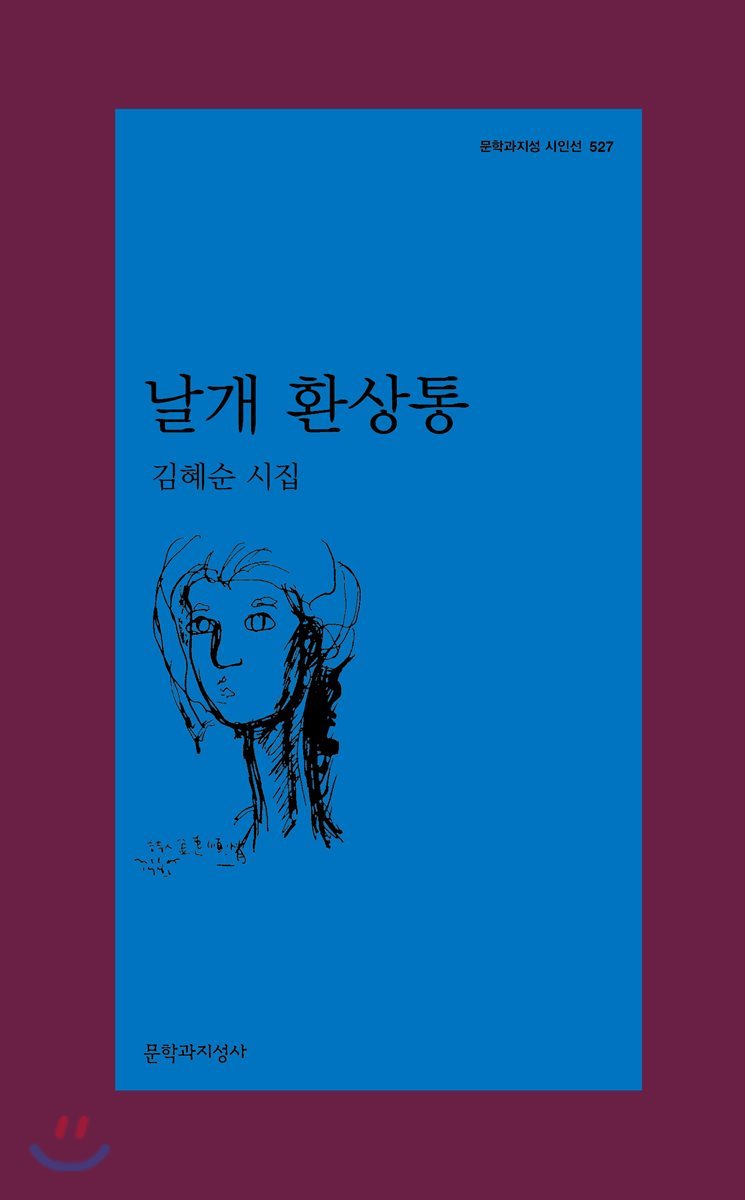<Springing to Life: A Celebration of Korean Literature that’s Captivating the World> International Award-Winning Works from 2019 to 2024
2024-10-02
- English(English)
- Korean(한국어)
Korean lit is being read by the world today. This significant milestone demonstrates that it has overcome fundamental barriers within the global literary landscape. Written in a less familiar language, Korean lit faces the intricate challenge of translation. Moreover, the domestic Korean reading market is relatively small, posing challenges for diverse and experimental literature to thrive. Despite these obstacles, it has garnered a following among contemporary global citizens. This remarkable phenomenon can be attributed first to the influence of Korean culture, also known as “Hallyu (Korean wave)” or “K-content.” It is fueled by a creative force capable of crafting stories and sensitivities that resonate with global audiences, complemented by the inherent creative energy of Korean culture. It is also a culmination of the efforts of writers and translators who have innovated a literary language that resonates with global readers, as well as the active support of the government. Most importantly, it is because there are readers who love Korean lit.
Here, we present a selection of Korean lit that has recently been translated into various languages and captivated readers around the world. These works are proof that Korean lit is transcending borders and expanding the boundaries of literature. Presently, the charm of Korean lit flourishes within the keen senses of global readers. (by Lee Kwang-Ho, Literary Critic, tr. Kim Soyoung)
* This book selection is based on our exhibition "Springing to Life: A Celebration of Korean Literature that's Captivating the World," held at COEX Starfield Library from April 18 to May 12, 2024. The exhibition featured Korean literary works that won international awards between 2019 and 2024.
Grass [English]
Author Keum Suk Gendry-Kim
Translator Janet Hong
Publisher Drawn & Quarterly
Year Published 2019
Originally Published in Korea by Bori in 2017
Grass is a tale about a survivor as resilient as grass based on the actual testimonies of Lee Ok-sun, a former “comfort woman” who was forced into sexual slavery for the Japanese military. The story unfolds in the form of a conversation between the narrator “I,” a persona of the author, and Ok-sun.
While other comics featuring Japanese military comfort women tend to focus on visualizing the abuse and pain they suffered to help readers sympathize with them, Grass takes a more challenging approach that breaks away from the pattern of sensationalizing abuse. Abuse is displayed in an abstract way, leaving it up to the readers to picture the pain. In a scene where Ok-sun confesses the sexual abuse she’d suffered one night, the actions are described in text and paired with a drawing of what the mountain looked like that night. Another scene closes up on the wrinkles on Ok-sun’s face and hands. And some pages show nothing but black boxes to convey the horror she felt. Through its delicate approach to abuse, Grass delves deeper into the comfort woman’s story. I, the narrator, actively take part in the interview by asking questions or harboring doubts as I listen to Ok-sun’s accounts. When she was fifteen, Ok-sun’s parents gave her up for adoption to a couple running an udon shop, but she eventually ended up in a comfort station. Now an old woman, Ok-sun says, “My mother was tricked too.” Yet, I can’t help but wonder whether her mother was really tricked. These thoughts running through the narrator’s mind are presented in black bubbles, allowing a chance for readers to sincerely consider the comfort woman’s testimonies. Grass thereby contemplates such testimonies from various angles instead of objectifying or romanticizing the life of a girl forced into sexual slavery under Japanese colonial rule. The freedom each character is given to express their own thoughts suggests how, as a form of storytelling, graphic novels can contribute to forming a community open to diverse voices that interact and clash regardless of age or gender. Polyphony can help turn survivor testimonies into cultural memory and this is how Grass seeks to the remember the life of a Japanese military comfort woman. (by Heo Yoon, Literary Critic, tr. Youngjae Josephine Bae)

一文字の辞典 [Japanese]
Author Kim So Yeon
Translator 姜信子
Publisher クオン
Year Published 2021
Originally published in Korea by Maeumsanchaek in 2018
Writing poetry is like compiling a dictionary of the poet’s own. Reading these singular dictionaries, we experience familiar situations or emotions becoming unfamiliar, and words we thought we knew being completely transformed.
Poetry can only be a dictionary insofar as its strangeness and novelty are ultimately connected by accuracy. One-Letter Dictionary—which contains the poet’s own definitions of single-character words such as 겉 (exterior), 깡 (guts), 뜰 (yard), 맛 (flavor), 생 (life), 손 (hand), 시 (poem), 집 (house), 폼 (form), and more—can thus be considered yet another collection of poetry by Kim.
Yet this hybrid ‘dictionary-poetry collection’ is also a dictionary and poetry collection created by the readers themselves. This book, in which white space takes up more room on the page than letters, invites readers to fill in those gaps with their own thoughts and words. By writing less, Kim—who defines “less” as “the best state of being” and similarly defines “empty” as “the best state of being so long as one is not hollow”—gifts readers with a poetry collection in its best possible state of being. While reading and using this One-Letter Dictionary, readers will come to experience firsthand the definition of “poetry” as provided by Kim, meaning “to keep what was already beautiful from becoming a thing of even greater beauty, and to make what cannot be a thing of beauty into a thing of beauty at long last,” or “to stow away in sentences the truths that cannot be salvaged with rough words and the secrets that would crumble if spoken aloud.” (Yeonjung Cho, Literary Critic, tr. Paige Morris)

Aufzeichnungen eines Serienmörders [German]
Author Kim Young-ha
Translator Inwon Park
Publisher Cass Verlag
Year Published 2020
Originally Published in Korea by Munhakdongne in 2013
The keywords “murder” and “memory” alone may seem like enough to picture what this story is all about: a serial killer’s account of the murders he committed, or a dramatic tale of violence and horror.
Yet, once you start reading Diary of a Murderer, you realize that those keywords are more of a medium to pose complex, layered questions about sin and redemption, life and philosophy, and truth and humor. The protagonist who calls himself a “gifted murderer” has never paid the price for his killings over the past three decades and is now preparing for his final murder. He relies solely on his own memorization method to tell his account, but the fact that he is losing his memory to Alzheimer’s soon turns the account into a story dictated not by his memory but its disappearance. His method thus causes him to forget his killings and his own records of his memory (or lack of memory) keep him from remembering his killings.
What can life be? A person would likely have a self, a world, a purpose, a process, a perception, an object . . . Most writers would agree that a life in the presence of such things merely constitutes of words to prove that presence and a well-crafted story that makes sense. Still, few will be able to express their agreement through a story like Diary of a Murderer, an extraordinary tale that involves getting rid of people (murder), eliminating lives (memory loss), confusion that denies a person’s life, and the paradox of ignorance. (by Ji Eun Baik, Literary Critic, tr. Youngjae Josephine Bae)

Hysteria [English]
Author Kim Yideum
Translators Jake Levine, Soeun Seo, Hedgie Choi
Publisher Action Books
Year Published 2019
Originally published in Korea by Moonji in 2014
Through her fifth poetry collection Hysteria, the poet sends glances of temptation in wanting to disrupt and violate the quotidian order, demonstrating that the voices of her poetic subjects are alluring as ever. The active use of allegorical interpretations since her first poetry collection continues in Hysteria where she brings in allegorical imagination to build and demolish a world made up of disparate others.
The poem “No Apology” presents a situation that everyone is likely to have encountered at least once in their lives: you get noodles with seafood black bean sauce instead of the plain black bean sauce you’d ordered. The narrator wonders, “Should I get the owner?” but hesitates out of concern that the waiter might be “bitched at.” I’m prepared to just eat what I’ve been served if the waiter apologizes but no apology comes. I’m still not ready to ask for the owner though, fearing worse things that could happen to the waiter. I remain stuck in the dilemma of neither being able to eat the noodles or send it back. The narrator’s obsession over an apology almost seems unreasonable until she confesses her own experience of having been “expelled” and “deleted” for taking the blame and apologizing instead of “putting forth the effort to argue.” The frequent blame games in reality where no one admits their fault or apologizes gives the poem an allegorical effect. The poem “Hysteria” portrays a narrator suffering in a packed subway. I want the woman preaching “the truth” to shut up and I desperately “need a new route, need to get out,” but instead, I’m surrounded by gropers and men falling asleep against me. The narrator’s hysterical rant as she feels like she’s about to be torn apart is a great example of the poet’s signature tone that can only be heard in her work. (by Lee Kyungsoo, Literary Critic, tr. Youngjae Josephine Bae)

如果我们无法以光速前行 [Chinese]
Author Kim Choyeop
Translator 春喜
Publisher 四川科学技术出版社
Year Published 2022
Originally Published in Korea by Heobeul in 2018
The Chinese translation of Kim Choyeop’s If We Can’t Go at the Speed of Light, titled 如果我们无法以光速前行 (2022) won the Chinese Nebula Award for Best Translated Work in 2023, as well as the Galaxy Award for Most Popular Foreign Writer in the same year.
Receiving recognitions bestowed upon authors and works from outside the Chinese-speaking world, Kim Choyeop made history as the first recipient to sweep both of China’s major science fiction literature awards in the same year. The Galaxy Awards committee lauded If We Can’t Go at the Speed of Light for its profound scientific and humanistic inquiries, as well as the author’s endeavor to resurrect forgotten women from history.
The titular story If We Can’t Go at the Speed of Light unfolds the narrative of Anna, a woman who willingly chooses to remain aboard a decommissioned space station, while “About My Space Hero” delves into the enigmatic choices made by Choi Jae-kyeong, who joined the first modified astronaut project but faced derision and disdain as a woman, Asian, and a single mother in a predominantly white male-centric milieu of astronauts. Kim Choyeop’s exploration of technology and humanity does not focus on the realm of future technology but instead on narratives concerning minorities and marginalized individuals, probing the chasm between technology and humanity, and the facets of human existence overshadowed by technological advancements. Her keen interest in women, minorities, and marginalized groups always intersects with an emphasis on coexistence and symbiosis. In “Symbiosis Theory,” the narrative navigates coexistence and symbiosis with beings outside our realm by revealing that what we have long perceived as quintessentially human was, in fact, alien. The underlying concern about co-evolution found throughout the seven short stories in If We Can’t Go at the Speed of Light continues to reverberate in her subsequent works, such as The World We Just Left Behind (2021), Planet Language Bookstore (2021), The Greenhouse at the End of the Earth (2021), and Ground Explorers (2023), expanding into issues pertaining to climate, disabilities, and ecology, thereby paving the way for the burgeoning potential of eco-science fiction. (by So Young-Hyun, Literary Critic, tr. Stella Kim)

Autobiography of Death [English]
Author Kim Hyesoon
Translator Don Mee Choi
Publisher New Directions
Year Published 2018
Originally Published in Korea by Munhaksilheomsil in 2016
Kim Hyesoon’s twelfth collection Autobiography of Death, published in 2016, is comprised of forty-nine poems about death. The poems, subtitled from “Day One” to “Day Forty-Nine,” resemble the forty-nine days of heartfelt prayer offered in the hope that the departed soul can find peace.
In her author’s note, Kim says, “When one writes poetry in a country of so many deaths, it’s inevitable that the voice that emerges is the voice of someone who is preoccupied with death.” It would be correct to say that while writing this collection, she did not ruminate on death as a concept but experienced it as an embodied reality. This collection, written mostly in the second person, offers condolences to the deceased “you” while at the same time consoling all of us who, without exception, will one day confront our own deaths.
Kim’s death sequence, which aims to actualize death as a reality and not an idea, reads as poetry that foreshadows the fact that “I,” like “you,” will someday have an encounter with death more so than poetry meant to reassure “me,” who, unlike “you,” lives on. In “a country of so many deaths,” in the helpless situation of having the hardest time choosing the words to explain death, Kim’s poems persist in doing the intense work of alleviating the unspeakable pain of the dead by drawing a direct connection between “your death” and “my death” without the meddling of abstraction. Autobiography of Death is the effort to actualize “your death” as “my death,” the refusal to cease in the attempt despite its near-impossibility, and the commitment to not allowing us to forget that this is the bare minimum we must do for those who cannot speak. (by Yeonjung Cho, Literary Critic, tr. Paige Morris)

Phantom Pain Wings [English]
Author Kim Hyesoon
Translator Don Mee Choi
Publisher New Directions
Year Published 2023
Originally Published in Korea by Moonji in 2019
Kim Hyesoon’s thirteenth collection, Phantom Pain Wings, was published in 2019 to coincide with the fortieth anniversary of her literary debut. For forty years, Kim has been writing poetry tirelessly, consistently, and always at the vanguard of the Korean literary world, to which this book can also attest.
Phantom Pain Wings is a collection about a father’s death. However, rather than mourning her father’s death as a completed event, the speaker of these poems is creating death herself. If we believe that death is a completely Other phenomenon that living human beings can never experience for ourselves, then this speaker transcends that impossibility with “I-do-bird.” “This book is not really a book / It’s an I-do-bird sequence / a record of the sequence,” Phantom Pain Wings declares. This collection is at once a “Bird-cries-out-from-me-day record,” an “I-do-bird-day record,” and a “Translation-of-a-certain-bird’s-chirping record” by an “I-do-bird-woman” (from “Bird’s Poetry Book”).
Death as the absolute Other is always a future occurrence. Thus, whether someone else’s or our own, death can never be a completed event for the living. In other words, human beings can only experience death on the condition that we are “in training” for it. Kim reveals the process of moving forward, taking “a step toward where I don’t exist,” in the phrase “I-do-bird.” Phantom Pain Wings is a record of this training in the art of “I-do-bird” as well as a record of the translation of a bird’s chirping. The book also suggests that neither the training nor the translation can ever be completed. The fact that death is an incompletable act implies that it is not a forward movement from here to some other place but rather an experience of time that goes on forever. If that is true, Phantom Pain Wings can be described as a collection that tells us living human beings how to face the deaths of others and our own imminent ends in the most tender way possible. (by Yeonjung Cho, Literary Critic, tr. Paige Morris)

Moms [English]
Author Yeong-shin Ma
Translator Janet Hong
Publisher Drawn Quarterly
Year Published 2020
Originally Published in Korea by Humanist in 2015
Moms (Humanist Books, 2015), revolves around a middle-aged single mother named Lee Soyeon, who works as a janitor while raising her son. The narrative captures the lives of various women, including Lee Sunshim, who, succumbing to parental pressure, hastily marries a man promising to not go any further than
“hold her hand in bed” after just three days of dating, offering a window into what the life of a girl raised in an impoverished household is like. Driven by her ambitions, Lee Soyeon starts asserting her made-up name as her true identity following the birth of her youngest child, and after divorcing her husband over his gambling debts, takes on the role of breadwinner for her family by working as a janitor. Moms aims to defy conventional notions about Korean women, who are often thought of as devoted wives and mothers, by portraying them as women with varied desires. The comic features mothers as they truly are, depicting them engaging in romantic relationships, getting into street fights with their partners’ girlfriends, and going dancing at discotheques for seniors.
Jongseok, Soyeon’s boyfriend of ten years who works as a waiter at a nightclub, often asks her to come to his workplace to help boost sales while comparing her unfavorably to his other girlfriends by telling her how much they spend on him. Their relationship, though far from being all sunshine and rainbows, is drearily realistic. The constant breaking up and getting back together resembles something out of a soap opera, complete with fights and love triangles, although their tumultuous lives feel more realistic than any scripted drama. Soyeon’s friends also date, cheat, and grapple with their pasts as they navigate through life. Being wealthy or maintaining a stable marriage is no guarantee of peace and quiet as each of them is faced with their own struggles. Soyeon and her friends ultimately get fired after a failed attempt to stand up against the verbal abuse and sexual harassment of company executives by forming a labor union, but nevertheless quickly find new jobs. In Moms, the realms of romance and work seamlessly overlap. Whether it’s a mother pursuing a romantic relationship or one toiling away at work, this comic serves to remind us that all mothers are simply human. Each one of them carries on with their life despite all its ups and downs, and that’s ultimately what makes them “moms.” (by Heo Yoon , Literary Critic, tr. Leo-Thomas Brylowski)

アーモンド [Japanese]
Author Sohn Won-pyung
Translator 矢島暁子
Publisher 祥伝社
Year Published 2019
Originally Published in Korea by Changbi in 2017
Winner of the Changbi Young Adult Literature Award in 2016, this novel has sold over one million copies in Korea to become a bestseller, and it has also been published in translation in more than thirty countries around the globe.
It received the 2020 Japanese Booksellers’ Award in the translated fiction category and was also selected as an Amazon Best Book of the Month in May of the same year. The Japanese Booksellers’ Award is determined through voting by Japanese bookstore employees themselves, who choose the book they most want to sell, making this accolade all the more special given that Japanese bookstore employees are particularly attuned to the preferences of readers. Most notably, Almond was the first Asian book to win the award since its inception.
The protagonist, Yunjae, was born with an exceptionally small amygdala, which prevents him from feeling emotions. Unable to experience joy, sadness, fear, or anxiety, he is labeled as a “monster.” Almond tells the story of this young boy, who, unable to feel emotions, finds himself having to grow up alone after losing his mother and grandmother in an accident. In a journey of growth, Yunjae learns to love and empathize with others, and develops the courage to confront his fears. The novel’s premise prompts a profound reflection on the nature of love, courage, and understanding, challenging readers to reconsider these fundamental aspects of human experience. In a captivating story that illustrates the difficulties of understanding others and summoning the courage to love, the author reveals the inherent human beauty found in such pursuits. This is what has allowed Almond to strike a chord with so many readers all around the world. The book conveys the message that we can still love each other even if we are unable to feel emotions, and also demonstrates through its many translations that language barriers can be overcome to bring us closer. (by Seo Youngin, Literary Critic, tr. Leo-Thomas Brylowski)

三十の反撃 [Japanese]
Author Sohn Won-pyung
Translator 矢島暁子
Publisher 祥伝社
Year Published 2021
Originally Published in Korea by Eunhaengnamu in 2017
This novel by Sohn Won-pyung was originally titled ‘Ordinary Human’ when it was awarded the Jeju 4.3 Peace Literary Prize in 2017, but was later retitled as Counterattack at Thirty at the time of its publication. It made the headlines in 2022 after winning the Japanese Booksellers’ Award in the translated fiction category only two years after Almond received the same honor, making it “the book Japanese bookstore employees most want to sell.”
The original title, ‘Ordinary Human,’ directly reflects the work’s overarching theme. Kim Ji-hye, a thirty-year-old woman born in 1988, leads an unremarkable and “ordinary” life as an intern at a cultural center run by a large Korean conglomerate. Kim Ji-hye’s life, characterized by an insufficient salary, a lack of purpose and fulfillment at work, and a hopeless future, mirrors the common reality of many young adults in Korea today. Despite giving their best and living diligently, such “ordinary” people constantly get the short end of the stick and are forced to cope with a perpetual sense of defeat. Counterattack at Thirty convincingly portrays the bitter reality of our world which fails to uphold what is ordinarily seen as common sense. Ji-hye, along with her colleague Gyu-ok, decide to shake things up one day by performing a small “counterattack” which ultimately appears to end in failure. However, through this act of resistance, Ji-hye undergoes personal growth and manages to find her own path and an escape out of her bleak reality. As a result, she begins to envision a world where everyone has a voice, built on a culture of solidarity and empathy rather than one dominated by the capital and superficial culture imposed by large corporations, which is enough to transform her life. The author extends a compassionate message to young readers in their thirties, encouraging them to seek solace and empathy within the pages of this compelling narrative. (by Seo Youngin, Literary Critic, tr. Leo-Thomas Brylowski)

The Disaster Tourist [English]
Author Yun Ko-eun
Translator Lizzie Buehler
Publisher Counterpoint
Year Published 2020
Originally Published in Korea by Minumsa in 2013
The Disaster Tourist (2013) was translated and published in English with a grant from the Literature Translation Institute of Korea in 2020, and became the first work of Korean fiction to win the CWA Crime Fiction in Translation Dagger 2021. The Daggers, established by the UK Crime Writers’ Association in 1955, are one of the major accolades in English-language crime fiction. Formerly known as the CWA International Dagger until 2019, the Crime Fiction in Translation Dagger is given to the best translated crime novel of the year. Yun Ko-eun stands as the first Asian recipient of the award since the inception of this category.
Yun Ko-eun’s remarkably uninhibited imagination unfolds within The Disaster Tourist, which delves into the realm of dark tourism. Beneath the surface of dark tourism, which seeks lessons from disasters and historical events, we see the pervasive influence of capitalism that virtually commodifies everything. While the commercialization of disasters is not a recent phenomenon, the power of global capitalism portrayed in The Disaster Tourist proves to be immense and ruthless beyond imagination. Capitalism commodifies even climate crises and even instigates the planning of artificial disasters to revive local economies. Through the people who have come to the island of Mui for various reasons, the disasters that are to become tourism products are performed and showcased like conspiracies or projects. However, it become immediately evident that climate disasters are anything but easy prey for capitalism. Disasters are not theatrical products that can be meticulously scripted and flawlessly planned and executed. Instead, as if laughing at such an idea, disasters become uncontrollable, sweeping away and engulfing the shortsighted and selfish desires of the people hiding behind capitalism. The Disaster Tourist unfolds with an unpredictable narrative that defies expectations, showing how a tourism merchandising project in the era of climate crisis can turn into a horrifying thriller in the blink of an eye. Through literary imagination, this novel sends a sharp warning about the true crisis in the era of climate crisis. (by So Young-Hyun (Literary Critic, tr. Stella Kim)

Cold Candies [English]
Author Lee Young-ju
Translator Jae Kim
Publisher Black Ocean
Year Published 2021
Originally Published in Korea by Moonji in 2014
When life is defined as a journey toward death regardless of individual will, the themes of death and life become central topics of exploration in Lee Young-ju’s poetry. From her debut collection to her latest works, the notions of death, pain, the emptiness of existence and its inherent sorrow have remained consistent points of fascination for Lee Young-ju. Her poetic persona is intricately woven into “the heart/of the night” where “no matter how much you scrub, this place doesn’t brighten.” However, Lee remarks, “For the one left behind, there is meaning in being left behind” (“Stalactite”). This ongoing investigation into mortality ultimately leads to a deeper appreciation or affirmation of life. As is aptly phrased on the back cover of her poetry collection, “Life is / an unfathomable / deep and warm pit,” and the poet recognizes that “To climb out, you much crawl until / your hands and feet shatter.”
In this poetry collection by Lee Young-ju, “doors” and “windows” frequently make appearances. Whether finding a door ajar, leaving open a window, or chipping away at walls, the narrator of Lee’s poems seeks to traverse or seep into alternative realms, and “finally succeeds in entering indoors like music” (“Into the Dream”), as music has the fluidity to seamlessly transition between realms. This is why the term “singer-songwriter” often finds its way into her poetry. She is a “Singer-Songwriter” who “begins in a puddle” while “singing”. In the proximity of death, which is the “furthest point from her birthplace, where the scent of decay gathers” (“Picnic”), Lee Young-ju’s verses strain to play the “music that feels like it would tear apart when flesh touches metal.” (by Lee Kyungsoo, Literary Critic, tr. Stella Kim)

Impossibles adieux [French]
Author Han Kang
Translator Pierre Bisiou
Publisher Éditions Grasset
Year Published 2023
Originally Published in Korea by Munhakdongne in 2021
Han Kang’s novel Impossible Goodbyes (2021) portrays the agonizing journey of confronting the traumatic memories of the April 3 Jeju Uprising and the Bodo League Massacre that unfolded between 1948 and 1950. The narrator, referred to as “I,” is a character modeled after Han Kang herself, the actual author of Human Acts (2014). In this work, Han Kang questions the significance of “writing about suffering” as she tells the stories of individuals haunted by memories of death and torture. Impossible Goodbyes follows “I” (or Gyeong-ha) and the psychological and physical turmoil she has to go through after she completes writing her novel Human Acts.
The protagonist’s life is shattered by the time she is done depicting “the massacre in that city,” and she begins to suffer from such terrible headaches and stomach cramps that her existence turns into a living nightmare that ultimately compels to draft her own will. The novel depicts the journey of “I” as she grapples with the historical trauma stemming from the April 3 Jeju Uprising and the Bodo League Massacre, which are intertwined with the anguish of her friend In-seon, a documentary filmmaker, and the tragedies haunting her own family.
This novel is a narrative about suffering that aims to put an end to all the pain depicted within its pages, from the physical and psychological torment “I” experiences both before and after writing her novel about the May 18 Gwangju Uprising, to the agony endured by her friend In-seon who must be pricked by a needle every three minutes to revive the nerves in her severed finger, as well as the suffering inflicted upon the victims and survivors of the April 3 Jeju Uprising as a result of the massacres and torture they were subjected to. At its core, the novel explores the convergence and sharing of suffering between “I” and the other characters, which is depicted through the lens of historical trauma and the act of “rewriting” this collective trauma. Doing so, it offers a theatricalization of the suffering experienced by “I,” linking it to the pain of In-seon and the agony of both the deceased and the survivors, who all converge at the boundary between life and death. This work delves into the themes of painful memories, redemption, and the challenges of writing about these things. (by Kim Youngchan, Literary Critic, tr. Leo-Thomas Brylowski)

한국문학은 지금 동시대의 세계인과 함께 읽히고 있습니다. 이 놀라운 변화는 한국문학이 세계문학 안에서 갖고 있는 근본적인 한계들을 극복한 것이어서 더욱 값진 것입니다. 한국문학은 한국어라는 변방의 언어로 되어 있기 때문에 번역이라는 어려운 과정을 거쳐야 합니다. 또한 한국문학의 자국 내 독서 시장은 비좁아서 다양하고 실험적인 문학들이 생존하고 공존하기 어려운 상황입니다. 그럼에도 불구하고 한국문학이 동시대 세계 시민의 독자를 갖게 된 것은 경이로운 사건입니다. 이 뜨거운 사건은 우선 ‘한류’ 혹은 ‘K-콘텐츠’라고 불리는 한국문화의 세계적인 확장성에 힘입은 것입니다. 한국문화 자체의 창의적 에너지와 함께 동시대의 세계인들과 향유할 수 있는 감수성과 스토리를 만든 문학적 창조력이 있었기 때문입니다. 세계 독자들과 함께 호흡할 문학 언어를 발명해낸 작가들과 번역자들의 분투, 그리고 정부의 적극적인 지원의 결과입니다. 무엇보다 중요한 것은 한국문학을 친애하는 독자들이 존재했기 때문입니다.
여기에, 최근 다양한 언어로 번역되어 세계 독자들을 매혹시키고 다시 한국으로 귀환한 문학들이 있습니다. 이 작품들은 다채로운 장르의 한국문학이 국경을 넘어 문학의 경계를 돌파하고 있음을 증명하고 있습니다. 이제 한국문학의 매혹은 동시대 세계 독자들의 살아있는 감각 속에 있습니다. (이광호 문학평론가)
* 이 큐레이션은 4월 18일부터 5월 12일까지 코엑스 별마당 도서관에서 열린 <문학을 펼쳐 봄: 세계를 매혹시킨 한국문학> 2019~2024 해외 문학상 수상작 전시를 온라인에서도 즐길 수 있도록 기획되었습니다.
풀 [영어]
저자 김금숙
국내출판 보리(2017)
해외출판 Drawn Quarterly(2019)
밟혀도 풀처럼 다시 일어나는 사람들의 이야기인 그래픽 노블 『풀』은 일본군 ‘위안부’ 피해생존자 이옥선의 구술사를 바탕으로 만들어졌다. 김금숙의 페르소나로 보이는 화자 ‘나’가 이옥선의 이야기를 듣고, 그와 대화하면서 ‘위안부’의 역사를 기록한 작품이다.
일본군 ‘위안부’를 다룬 만화들이 소녀가 경험한 고통이나 폭력을 통해 독자들의 공감에 호소하는 전략을 취하는 반면, 『풀』은 폭력을 선정적으로 재현하지 않기 위해 고민한다. 이옥선이 자신이 당한 성폭력을 이야기하는 장면은 텍스트로 처리하고 이미지는 그날 밤의 산을 재현한다. 할머니의 주름진 얼굴이나 손에 주목해 그리기도 한다. 모든 칸을 검은 먹색으로 칠하기도 했다. 독자들이 ‘위안부’들의 고통을 상상하고 공감할 수 있도록 유도하기 위해 폭력을 추상화하는 방식을 선택한 것이다. 이는 작가 김금숙이 성폭력을 어떻게 재현할지를 고민한 끝에 얻은 성과다. 폭력을 섬세하게 재현하면서 『풀』은 ‘위안부’의 이야기를 듣는 데 골몰한다. ‘나’는 인터뷰 내용에 대해 의문을 던지거나 반박하는 등 적극적 듣기를 실천한다. 이옥선은 부모에 의해 15세에 우동집으로 보내졌다 위안소까지 가게 됐다. 노인이 된 이옥선은 “우리 엄마도 속은 거지”라고 말한다. 하지만 ‘나’는 ‘할머니의 어머니는 정말로 모르셨을까?’라고 생각한다. 검은 말상자를 통해 화자의 생각을 표현함으로써 만화책을 통해 증언을 읽는 독자의 질문을 대신하는 것이다. 이는 독자들이 ‘위안부’의 이야기를 진정성 있게 듣는 자리를 마련한다. (허윤 문학평론가)

한 글자 사전 [일본어]
저자 김소연
국내출판 마음산책(2018)
해외출판 クオン(2021)
시를 쓴다는 것은 시인만의 고유한 사전을 만드는 작업과도 같다. 우리는 그 특별한 사전들을 읽으며 익숙하던 상황이나 감정이 낯설어지는 경험을, 그리고 분명 잘 알고 있다고 여겼던 단어나 낱말이 전혀 새로워지는 경험을 하게 된다. 그 낯섦과 새로움이 결국 정확함과 통하고 있다는 점에서 시는 사전일 수밖에 없다.
겉, 깡, 뜰, 맛, 생, 손, 시, 집, 폼 등의 한 글자들에 대한 시인 나름의 정의를 써내려간 『한 글자 사전』은 그래서 김소연의 또 다른 시집이라고 할 수 있다. 그런데 이 ‘사전-시집’은 독자들이 직접 만드는 사전이자 시집이기도 하다. 글자보다 공백이 더 많은 분량을 차지하고 있는 이 책을 읽으며 독자들은 그 빈 곳을 자신만의 마음과 단어들로 채워보게 된다. ‘덜’을 “가장 좋은 상태”로, 마찬가지로 ‘빈’을 “휑하지만 않다면 가장 좋은 상태”라고 정의한 김소연은 덜 쓰는 형태로 가장 좋은 상태의 시집을 독자들에게 선물한 셈이다. 김소연이 제시한 ‘시’의 정의, 즉 “이미 아름다웠던 것은 더 이상 아름다움이 될 수 없고, 아름다움이 될 수 없는 것이 기어이 아름다움이 되게 하는 일” 혹은 “성긴 말로 건져지지 않는 진실과 말로 하면 바스라져버릴 비밀들을 문장으로 건사하는 일”이 과연 무엇인지를 독자들은 『한 글자 사전』을 읽는 동시에 쓰면서 직접 체험하게 된다. (조연정 문학평론가)

살인자의 기억법 [독일어]
저자 김영하
국내출판 문학동네(2013)
해외출판 Cass Verlag(2020)
‘살인’과 ‘기억’을 열쇳말로 전체를 상상하게 만드는 이 소설은, 일단 ‘연쇄살인마’가 기억하는 살인에 관한 이야기, 폭력과 공포의 드라마로 읽히기 쉽다. 하지만 소설을 읽어 나가면서 우리는 이것이 ‘살인자’와 ‘기억법’을 매개로 던지는 죄와 구원, 인생과 철학, 진실과 유머 등 여러 층위가 복합된 질문 속으로 우리를 빠뜨려버리는 이야기임을 알게 된다.
삼십 년 동안 연쇄 살인을 저질렀으나 한 번도 죗값을 치르지 않았고 지금 마지막 살인을 준비하고 있다고 말하는 자칭 “천재적인 살인자”가 있다. 그의 ‘기억법’에 오로지 의존하여 기록된 이 소설은, 그러나 그가 ‘알츠하이머’에 걸려 ‘기억을 잃어간다’는 사실로부터 기억에 의한 이야기가 아니라 망각에 의한 이야기가 된다. 이 ‘살인자’의 기억법은 살인을 ‘기억 못하(고 망각하)는 법’이고 그것으로 ‘기록된 기억(또는 망각)’은 ‘살인’에 대해 알게 하지 못한다.
사람의 일생이란 무엇인가. 자아가 있고, 세계가 있고, 목적이 있고, 과정이 있고, 인식이 있고, 대상이 있고... 이런 ‘있음’으로 성립하는 인생이란, 오직 있음을 있음으로 증명하는 말, 말이 되게 지어놓은 ‘이야기’로 성립할 뿐이라는 데, 동의하지 않는 작가는 드물 것이다. 그러나 ‘사람을 없앰’(살인)과 ‘인생을 삭제함’(망각)이라는 파격적 스토리로, ‘사람의 일생’을 부정하는 착란과 무지의 역설로, 그 동의를 표한 이야기는 『살인자의 기억법』 말고 다시 읽기 어려울 것이다. (백지은 문학평론가)

히스테리아 [영어]
저자 김이듬
국내출판 문학과지성사(2014)
해외출판 Action Books(2019)
김이듬의 다섯 번째 시집 『히스테리아』는 일상의 질서를 뒤흔드는 균열과 위반의 시선을 통해 김이듬의 시적 주체가 여전히 매혹적인 목소리를 지니고 있음을 보여준다. 첫 시집부터 알레고리적 해석을 적극적으로 끌어들이며 시를 써 온 김이듬은 이번 시집에서도 알레고리적 상상력을 적극 활용하면서 이질적인 타자들로 구성된 세계를 구축하고 허물기를 지속한다.
「사과 없어요」는 “짜장면 시켰는데 삼선짜장면이 나”온, 누구나 한번쯤 경험해 봤을 법한 상황을 그리고 있다. 시의 화자는 “주인을 불러 바꿔달라고 할까” 하다가도 그러면 “이 종업원이 꾸지람 듣”지 않을까 하는 마음에 이러지도 저러지도 못하고 망설인다. 미안하다고 사과하면 그냥 먹을 준비가 이미 되어 있는 화자인데 사과는 없고 그렇다고 주인을 부르자니 마음에 걸리는 게 한두 가지가 아니다. 시의 화자는 “아 어쩐다,”를 일곱 번이나 외치면서 그냥 먹지도 물리지도 못하는 딜레마 상황에 자신을 놓아둔다. 이게 그렇게까지 고민할 일일까 싶다가도 사과했다가 “용서받기는커녕 몽땅 뒤집어”쓰거나 “싸우기 귀찮아서 잘못했다고 말하고는 제거되고 추방된” 적이 있다는 화자의 고백 앞에서는 이토록 사과에 집착하는 화자의 심정에 공감하게 된다. 잘못하고도 사과는커녕 적반하장으로 나오는 일이 비일비재한 현실이 이 시에 알레고리적 효과를 더하는 것은 물론이다. 표제시 「히스테리아」는 만원 지하철에 갇힌 채 몸과 몸이 부딪히기도 하고 목청 높여 “진리를 말하는” 소음 유발자에 시달리기도 하는 화자를 그린다. 이 상황에서 “벗어나야 하는데 나가야 하는데” 성추행과 잠꼬대의 느닷없는 폭력에 무방비로 노출된 화자가 “찢어질 것 같”은 히스테리의 상태에서 쏟아내는 언어야말로 김이듬 시의 독보적인 목소리이다. (이경수 문학평론가)

우리가 빛의 속도로 갈 수 없다면 [중국어]
저자 김초엽
국내출판 허블(2018)
해외출판 四川科学技术出版社(2022)
김초엽은 『우리가 빛의 속도로 갈 수 없다면』의 번역 출간본인 ≪如果我们无法以光速前行≫(2022)으로 2023년 제14회 중국 성운상(The Chinese Nebula Award)을 번역작품 부문에서 수상하였고, 2023년 제34회 은하상(The Galaxy Award) 최우수외국작가상을 수상하였다.
비중화권 작가와 작품에 주는 상으로, 김초엽은 중국의 양대 SF 문학상을 동시에 수상한 최초 수상자이다. 은하상 선정위원회는 『우리가 빛의 속도로 갈 수 없다면』이 갖는 과학과 인문학적 질문의 깊이에 주목하였고, 역사에서 망각된 여성들을 복원하려는 작가의 시도를 고평하였다. 표제작이기도 한 「우리가 빛의 속도로 갈 수 없다면」에서는 폐기 예정인 우주 정거장에 기꺼이 남기를 선택하는 여성 안나의 이야기를 다루었고, 「나의 우주 영웅에 관하여」에서는 최초의 개조 우주비행사 프로젝트에 지원했으나 백인 남성 중심의 우주비행사 세계에서 여성, 동양인, 비혼모로서 모멸과 멸시의 대상이었던 최재경의 미스터리한 선택의 이야기를 다루었다. 기술과 인간에 대한 김초엽의 질문은 기술의 미래가 아니라 타자와 소수자에 대한 이야기로, 기술과 인간의 간극이나 기술의 속도가 누락한 인간의 면모에 가닿는다. 여성, 타자, 소수자에 대한 김초엽의 관심은 언제나 공존과 공생에 대한 지향과 맞닿아 있다. 「공생가설」에서는 우리가 인간성이라 믿어왔던 것이 실은 외계성이었음을 밝히는 방식으로 경계 바깥 존재와의 공존과 공생을 다루었다. 『우리가 빛의 속도로 갈 수 없다면』에 실린 7편의 단편들 전반에 흩뿌려져 있는 공진화에 대한 문제의식은 『방금 떠나온 세계』(2021), 『행성어 서점』(2021), 『지구 끝의 온실』(2021), 『파견자들』(2023)로 이어지고 있으며, 기후, 장애, 생태에 대한 문제의식으로 확장되어 에코 SF의 가능성을 열어가는 중이다. (소영현 문학평론가)

죽음의 자서전 [영어]
저자 김혜순
국내출판 문학실험실(2016)
해외출판 New Directions(2018)
2016년에 출간된 김혜순의 열두 번째 시집 『죽음의 자서전』 은 죽음에 대한 마흔아홉 편의 시로 이루어져 있다. ‘하루’에서 ‘마흔아흐레’까지의 부제가 차례로 달린 시들은, 망자의 영혼이 평안에 들 수 있게끔 49일 동안 올리는 정성스러운 기도 행위를 닮아 있다.
시인의 말에 김혜순은 “이토록 억울한 죽음이 수많은 나라에서 시를 쓴다는 것은 죽음을 선취한 자의 목소리일 수밖에 없다”라고 적었다. 시집을 쓰는 내내 그녀는 죽음을 관념으로 사유한 것이 아니라 실재로서 체험했다고 하는 것이 맞을 것이다. ‘너’라는 2인칭이 주로 쓰이는 이 시집은 ‘죽은 너’에게 건네는 애도의 말임과 동시에 언젠가는 예외없이 자신의 죽음을 대면하게 될 우리 모두를 향한 위로이기도 하다.
죽음을 관념이 아닌 실재로서 실감하고자 하는 김혜순의 죽음 연작들을, ‘너’와 달리 살아 남은 ‘나’를 안도하기보다는 언젠가 ‘너’처럼 죽음과 마주하게 될 ‘나’를 예감하는 시로 읽힌다. ‘이토록 억울한 죽음이 수많은 나라에서’, 죽음이라는 단어를 설명할 어떠한 말도 쉽게 고를 수 없는 무력한 상황에서, 김혜순의 시는 ‘네 죽음’과 ‘내 죽음’을 관념의 개입 없이 곧장 연결시킴으로써 죽은 자의 말 못 할 고통을 달래는 치열한 행위를 지속하고 있다. 네 죽음을 내 죽음으로 실감해보는 일, 불가능에 가까운 이 같은 시도를 쉬지 않는 것, 이것이 바로 말 없는 그들을 위해 우리가 해야 할 최소한의 의무라는 사실을 잊지 않도록 해주는 것이 『죽음의 자서전』이다. (조연정 문학평론가)

날개환상통 [영어]
저자 김혜순
국내출판 문학과지성사(2019)
해외출판 New Directions(2023)
김혜순의 열 세 번째 시집 『날개 환상통』 은 시인의 등단 40주년을 맞아 출간되었다. 40년 동안 쉬지 않고 꾸준히 시를 써오면서 김혜순은 언제나 한국 문단의 전위에 있었다. 이 시집 역시 그러한 사실을 확인시켜주는 시집이 아닐 수 없다.
『날개 환상통』 은 아버지의 죽음을 말하는 시집이다. 그러나 화자는 완료된 사건으로서 아버지의 죽음을 애도하는 것이 아니라 직접 죽음을 만들고 있다. 살아 있는 인간이 결코 스스로 체험할 수 없는 완벽한 타자적 형상이 죽음이라고 할 수 있다면 이 시집의 화자는 ‘새하기’를 통해 그 불가능을 넘어선다. “이 시집은 책은 아니지만/새하는 순서/그 순서의 기록”이며, “새가 우는 날의 기록” “새하는 날의 기록”이자 “새하는 여자”의 “새소리 번역의 기록”(「새의 시집」 )이라고 선언된다.
절대적 타자로서의 죽음은 언제나 미래의 사건이다. 타인의 죽음이건 나의 죽음이건 살아 있는 인간에게 죽음은 그러므로 완료된 사건일 수가 없다. 달리 말하면 인간은 ‘수행중’이라는 조건으로서만 죽음을 체험할 수 있다. “내가 없는 곳으로 한 걸음” 나아가는 그 과정을 김혜순은 ‘새하기’라는 말로 드러낸다. 『날개 환상통』 은 ‘새하기’라는 수행의 기록이자 ‘새소리’의 번역의 기록이다. 그리고 그 수행과 번역은 완벽히 완료될 수 없다는 점을 전제로 한다. 죽음이 완료될 수 없는 행위라는 점은, 죽음이 여기와는 다른 공간으로 나아가는 것이 아니라 영원히 지속되는 시간의 체험일 수밖에 없다는 점을 시사한다. 그렇다면 『날개 환상통』 은 살아 있는 인간이 우리에게 일어난 타인의 죽음을, 그리고 다가올 나 자신의 죽음을 가장 따뜻하게 마주하는 방법이 무엇인지 알려주는 시집이라고도 할 수 있다. (조연정 문학평론가)

엄마들 [영어]
저자 마영신
국내출판 휴머니스트(2015)
해외출판 Drawn Quarterly(2020)
『엄마들』(휴머니스트, 2015)은 건물 청소원으로 일하며 아들을 키우고, 중년이 된 엄마 이소연을 중심으로 다양한 여성들의 모습을 기록한다. 20대 초반 부모의 성화에 밀려 선본 남자와 ‘손만 잡고 잔다’는 말에 속아 데이트한 지 3일 만에 결혼한 이순심의 삶은 가난한 집에서 태어난 딸이 어떻게 살게 되는지를 잘 보여준다.
막내를 낳고 나서부터 가명 이소연을 자신의 이름으로 사용할 만큼 그는 자신의 삶에 욕망이 있는 여성이었다. 남편의 도박빚을 감당하다 못해 이혼한 그는 청소노동자로 일하면서 가장이 된다. 여기서 독자는 헌신적인 한국의 어머니상을 떠올리기 쉽다. 하지만 『엄마들』은 다르다. 연애하는 엄마, 애인의 여자친구와 길에서 머리채를 잡고 싸우는 엄마, 콜라텍에 춤을 추러 가는 엄마 등 다양한 욕망을 가진 여성들이 날 것으로 등장한다.
소연의 10년 된 남자친구 종석은 성인용 나이트클럽에서 웨이터를 하며, 종종 소연에게 직장에 와서 매상을 올려줄 것을 부탁하고, 다른 여자친구는 자신에게 돈을 이만큼이나 쓴다며 비교한다. 이들의 관계는 빈말로도 아름답다고는 할 수 없지만, 그만큼 지질하게 현실적이다. 헤어졌다가도 매번 다시 만나는 과정에서 애인들 사이에서 벌어지는 몸싸움이나 삼자대면 등 막장 드라마 같은 대목들이 이어지지만, 이 때문에 드라마처럼 매끄러울 수 없는 삶이 더 사실적으로 느껴진다. 소연의 다른 친구들도 연애하고, 바람을 피우고, 지난한 삶과 드잡이를 하며 살아간다. 부자라고 해서, 안정적으로 결혼을 유지 중이라고 해서 평온한 것은 아니다. 모두 저마다 치열하다. 폭언과 성추행을 일삼는 회사 간부에 대항해서 노조를 만들려다 실패한 소연과 그의 친구들은 결국 해고된다. 그래도 금세 새 일자리를 찾는다. 『엄마들』에서 연애와 노동은 자연스럽게 겹쳐진다. 연애하는 엄마도, 노동자인 엄마도 다 같은 인간이다. 삶은 지지부진할지라도 꾸준히 살아간다. 그래서 엄마다. (허윤 문학평론가)

아몬드 [일본어]
저자 손원평
국내출판 창비(2017)
해외출판 祥伝社(2019)
2016년 제10회 창비 청소년문학상 수상작이다. 국내에서 100만부 이상이 팔린 베스트셀러이며 세계 30여 개국에 번역되었다. 2020년 제19회 번역부문 ‘일본서점대상’을 수상했고, 2020년 아마존 베스트북에 선정되었다. ‘일본서점대상’은 일본의 서점직원들이 뽑은 ‘가장 팔고 싶은 책’으로, 서점 직원들의 투표로 수상작이 결정된다.
현장에서 독자들의 반응을 가장 예민하게 감지하는 서점 직원들의 추천작이라는 점에서 의미 깊다. 『아몬드』의 수상은 이 상이 설립된 이래 최초의 아시아인 수상이다.
주인공 ‘윤재’는 ‘편도체’의 크기가 작은 상태로 태어나 감정을 느끼지 못한다. 기쁨이나 슬픔, 공포와 불안을 느끼지 못하는 윤재는 ‘괴물’로 불린다. 『아몬드』는 감정을 느끼지 못하는 윤재가 사고로 어머니와 할머니를 잃고, 홀로 성장해가는 이야기이다. 그리고 이 성장은 타인에 대한 사랑과 공감을, 그리고 두려움에 맞서는 용기를 배워 나가는 과정으로 채워진다. ‘감정을 느끼지 못한다’는 설정은 우리가 손쉽게 말하는 ‘사랑과 용기, 이해’의 마음들을 근본적으로 되묻게 한다. 타인을 이해한다는 것, 그리고 사랑을 위해 용기를 낸다는 것이 얼마나 어려운 것인가, 그럼에도 불구하고 그것을 향해 나아가는 인간은 얼마나 아름다운가를 작가는 흡입력있는 서사로 보여준다. 이는 전 세계의 독자들이 『아몬드』를 사랑하는 이유이기도 하다. 전세계에 번역된 『아몬드』는 이렇게 말하고 있는 듯하다. ‘감정을 느끼지 못해도’ 우리는 결국 사랑할 수 있다. ‘언어가 달라도’ 우리는 더 가까워질 수 있다. (서영인 문학평론가)

서른의 반격 [일본어]
저자 손원평
국내출판 은행나무(2017)
해외출판 祥伝社(2021)
손원평이 쓴 장편소설로 2017년 ‘제주 4.3평화문학상’ 수상작이다. 수상 당시의 제목은 『보통 사람』이었고, 출간되면서 『서른의 반격』이라는 제목이 붙여졌다. 2022년 번역부문 ‘일본서점대상’을 수상했다. 2020년 『아몬드』가 같은 상을 수상하고 2년 후 다시 ‘일본의 서점 직원들이 뽑은 가장 팔고 싶은 책’으로 선정됨으로써 화제가 되었다.
원제인 ‘보통 사람’은 작품이 말하는 주제를 직설적으로 보여준다. 1988년생, 서른 살의 ‘김지혜’는 대기업이 운영하는 문화센터의 인턴 직원으로 내세울 것 없는 ‘보통’의 삶을 살아간다. 충분한 연봉도, 일의 성취와 보람도, 미래의 희망도 가질 수 없는 김지혜의 일상은 오늘을 살아가는 보통의 청년들이 겪고 있는 현실이기도 하다. 최선을 다해 성실하게 살아가지만, 늘 억울한 피해와 패배감을 안고 살아가는 이들이 ‘보통 사람’인 현실, 『서른의 반격』은 ‘보통 사람’의 상식이 지켜지지 않는 우리의 씁쓸한 현실을 설득력있게 그려낸다. 직장 동료로 만난 ‘규옥’과 함께 변하지 않는 세상에 작은 돌멩이를 던지는 ‘반격’은 결국 ‘패배’한 것처럼 보인다. 그러나 전망 없는 답답한 현실에서 ‘지혜’는 자기만의 출구를 찾아내며 성장한다. 대기업의 자본이 장식처럼 거느린 ‘교양’과 ‘문화’가 아니라, 각각의 목소리로 타인과 연대하고 공감하는 작은 문화들로 만들어진 세상을 ‘지혜’는 꿈꿀 수 있게 되었고, 그것만으로도 ‘지혜’의 삶은 달라질 것이다. 서른의 청춘들에게 전하는 작가의 선량한 메시지는 독자들을 따뜻한 공감과 위로의 세계로 이끈다. (서영인 문학평론가)

밤의 여행자들 [영어]
저자 윤고은
국내출판 민음사(2013)
해외출판 Counterpoint(2020)
『밤의 여행자들』(2013)은 한국문학번역원의 지원을 받아 2020년 영어로 번역 출간된 The Disaster Tourist 로 2021년 영국 대거 문학상을 한국문학 최초로 수상하였다. 영국 추리작가협회에 의해 1955년 제정된 대거 문학상은 영어권을 대표하는 추리문학상 가운데 하나이다.
2019년까지 인터내셔널 대거상으로 불렸던 ‘번역추리소설 부문’ 문학상은 매년 영어로 번역된 해외 추리문학 가운데 뛰어난 작품을 선정한다. 윤고은 작가는 해당 부문이 개설된 이래 아시아 작가 최초의 수상자이다. 윤고은 소설의 놀랍도록 자유로운 상상력은 『밤의 여행자들』에서 다크투어리즘을 둘러싸고 펼쳐진다. 재난이나 역사에서 교훈을 얻게 하는 다크투어리즘의 이면에서 우리가 확인하게 되는 것은 사실상 모든 것을 상품화하는 자본주의의 위력이다. 재난을 상품화하는 일이 어제오늘의 일은 아니지만, 『밤의 여행자들』에서 만나게 되는 글로벌 자본주의의 위력은 상상보다 거대하며 잔혹하다. 자본주의는 기후 위기마저 상품화하며, 심지어 지역 경제를 되살리기 위한 인공 재난의 기획을 부추긴다. 각기 다른 이유로 무이섬에 모인 이들을 통해 관광 상품이 될 재난은 프로젝트처럼 음모처럼 연출되고 상연된다. 하지만 기후 재난이 결코 만만한 자본의 먹잇감이 아니라는 사실은 곧바로 판명된다. 잘 짜인 각본에 따른 연극처럼 한 치의 오차 없이 상연되는 기획된 재난 같은 것은 없다. 오히려 기획과 각본을 비웃듯 통제 불능인 재난은 자본주의 뒤에 숨은 인간들의 근시안적이고 이기적인 욕망을 휩쓸듯 집어삼킨다. 『밤의 여행자들』은 기후 위기 시대의 관광 상품화 프로젝트가 단번에 오싹한 스릴러가 될 수 있음을 예측 불허의 전개로 펼쳐 보인다. 문학적 상상력으로 기후위기 시대의 진짜 위기를 날카롭게 경고한다. (소영현 문학평론가)

차가운 사탕들 [영어]
저자 이영주
국내출판 문학과지성사(2014)
해외출판 Black Ocean(2021)
각자의 의지와 상관없이 태어나 죽음을 향해 나아가는 것이 인생이라고 할 때 죽음과 삶이라는 문제는 이영주의 시를 관통하는 주제이자 탐구 대상이라고 할 수 있다. 첫 시집에서 가장 최근 시집에 이르기까지 죽음과 고통, 삶의 허무와 슬픔은 이영주 시의 지속적인 관심의 대상이 되어 왔다.
“아무리 문질러도/ 이곳은 밝아지지 않는” “한밤/ 밤의 한가운데”에 이영주 시의 주체는 속해 있지만 “남겨진 사람은/ 남겨진다는 것에 의미가 있다”(「종유석」)고 시인은 말한다. 죽음에 대한 지속적인 탐구는 마침내 삶에 대한 자각이나 긍정에 이르게 한다. 시집 뒤표지의 말처럼 “생활은/ 이해할 수 없는/ 깊고 따뜻한 구덩이”이므로 “나오려면 손과 발이 부러지도록 기어서/ 나와야 한다”는 것을 시인은 안다.
이영주의 이 시집에는 ‘문’이나 ‘창문’이 자주 등장한다. 문이 열려 있거나 창문을 열어두었거나 벽 틈을 파내거나 하면서 시의 주체는 다른 세계로 넘나들거나 스며들고자 한다. “마침내 그는 음악처럼 안으로 진입하는 데 성공한”(「꿈속으로 들어가」)다. 음악이야말로 스며들듯 자유자재로 이 세계에서 저 세계로 넘어갈 수 있는 속성을 지니고 있으니 말이다. 이 시집에 ‘싱어송라이터’가 종종 등장하는 까닭도 여기에 있다. 그는 “노래를 부르면서” “웅덩이에서 시작”하는 「싱어송라이터」이다. “태어난 곳에서 가장 먼 곳, 폐기물 냄새가 모여드는 곳”(「야유회」)인 죽음 가까운 자리에서 이영주의 시는 “쇠에 살점이 닿으면 전부 찢어질 것 같은 음악”(「싱어송라이터의 겨울」)을 안간힘을 쓰며 연주한다. (이경수 문학평론가)

작별하지 않는다 [불어]
저자 한강
국내출판 문학동네(2021)
해외출판 Éditions Grasset(2023)
한강의 『작별하지 않는다』(2021)는 1948년에서 1950년에 걸쳐 벌어졌던 제주 4·3 사건과 보도연맹 학살사건의 참상을 중심에 놓고 그 사건의 기억에 접근하는 고통스러운 여정을 그리는 소설이다.
화자인 ‘나’는 『소년이 온다』(2014)를 쓴 실제 작가 한강을 연상시키는 인물이다. 한강은 『소년이 온다』에서 죽음과 고문의 기억으로 고통받는 자들의 이야기를 통과하면서 ‘고통에 대해 쓴다는 것’의 의미를 물었다. 『작별하지 않는다』는 그 소설을 쓰고 난 뒤 ‘나’(경하)가 겪어야 했던 심리적, 신체적 고통의 체험을 부각한다. ‘그 도시의 학살’에 대한 소설을 쓰고 나서 ‘나’의 평범한 일상은 파괴되고, 끔찍한 두통과 위경련에 시달리면서 유서를 쓰기도 하는 등 죽음 같은 나날을 견디고 있다. 소설은 그런 고통을 겪으며 다큐멘터리 작가인 친구 인선의 고통과 비극적인 가족사를 경유해 제주 4·3과 보도연맹 사건이 야기한 역사적 고통과 접속하는 ‘나’의 여정을 기록한다.
이 소설은 5·18에 대한 소설 창작의 전후로 맞닥뜨린 ‘나’의 신체적, 심리적 고통, 잘린 손가락의 신경을 살리기 위해 3분마다 바늘에 찔려야 하는 친구 인선의 끔찍한 신체적 고통, 제주 4·3의 망자들과 생존자들이 겪어야 했던 학살과 고문의 고통, 그 모든 고통으로부터의 구원을 기구하는 ‘고통의 서사’다. 소설의 중심에 있는 것은 ‘나’와 타자의 고통의 겹침 및 분유(分有)를 매개로 한 역사적 트라우마의 ‘함께 겪기’이자 ‘다시 쓰기’다. 그렇게 이 소설은 삶과 죽음의 경계에서 혼(魂)과의 접속을 통해 ‘나’의 고통과 인선의 고통, 죽은 자들의 고통과 생존자의 고통을 하나로 겹쳐놓고 고통의 기억과 구원, 그리고 그에 대한 글쓰기의 문제를 무대화한다. (김영찬 문학평론가)

Related Authors11
- Kim Keumsuk(김금숙) Cartoonist
- Yeong-shin Ma(마영신) Cartoonist
- Kim Choyeop(김초엽) Author
- Yun Ko Eun(윤고은) Novelist
- Sohn Won-pyung(손원평) Novelist
- Lee Young Ju(이영주) Poet
- Kim youngha(김영하) Novelist
- Kim Hyesoon(김혜순) Poet
- Kim So Yeon(김소연) Poet
- Kim Yi-deum(김이듬) Poet
- Han Kang(한강) Novelist
Original Books13 See More
Hub Library Members Program Guide
The Hub Library Members Program helps member libraries to enrich their collections of Korean literature through annual book donations from the LTI Korea Library,
- Membership Criteria :
-
- 1) Only one library per state or city can be accepted into the program.
- 2) There are no restrictions on the type of organization that can join but it must have a public library system in place.
- Program Details :
-
- 1) Library submits official application. (Applications are received all year around.)
- 2) LTI Korea announces list of accepted members biannually.
- 3) LTI Korea and the members library discuss and finalize the list of books for donation.
- 4) Books are delivered to the member library along with a confirmation of receipt form.
- Membership Benefits :
-
- 1) Members can build their collections of Korean Literature in translation.
- 2) Members can receive support for promotional events related to Korean Literature in the form of book donation.
- 3) Members can receive new release annually once they submit a status report.
If you have any question, please get in touch with us at the contact details below.
Thank you.
LTI Korea Library,
112 Gil-32, Yeongdong-daero [Samseong-dong],
Gangnam-gu, Seoul, 135-873, Korea
Tel. 82-2-6919-7755 / Fax . 82-2-6919-7759
Email : slatibatfast@klti.or.kr
Collection of personal information for sending newsletters
1. Please tick the appropriate box(es) below if you wish to receive our monthly email newsletters containing information on new titles and the latest news on Korean literature.
| Language | Contents |
|---|---|
| Korean | New translated Korean literature titles, author interviews, book reviews, news from abroad, etc. |
| English |
2. Consent to Collection and Use of Personal Information
We collect personal information (email) solely for the purpose of dispatching our email newsletters on Korean literature.
| Company | Information | Purpose | Retention Period |
|---|---|---|---|
| Stibee, Inc. | Dispatch of email newsletter | Until withdrawal of membership of termination of contract |
[Right to refuse and disadvantage incurred thereof]
※ You have the right to refuse to consent to collection and use of personal information as listed above. If you refuse, you may have limited access to service provided by Digital Library of Korean Literature. However, your membership will not be restricted.





